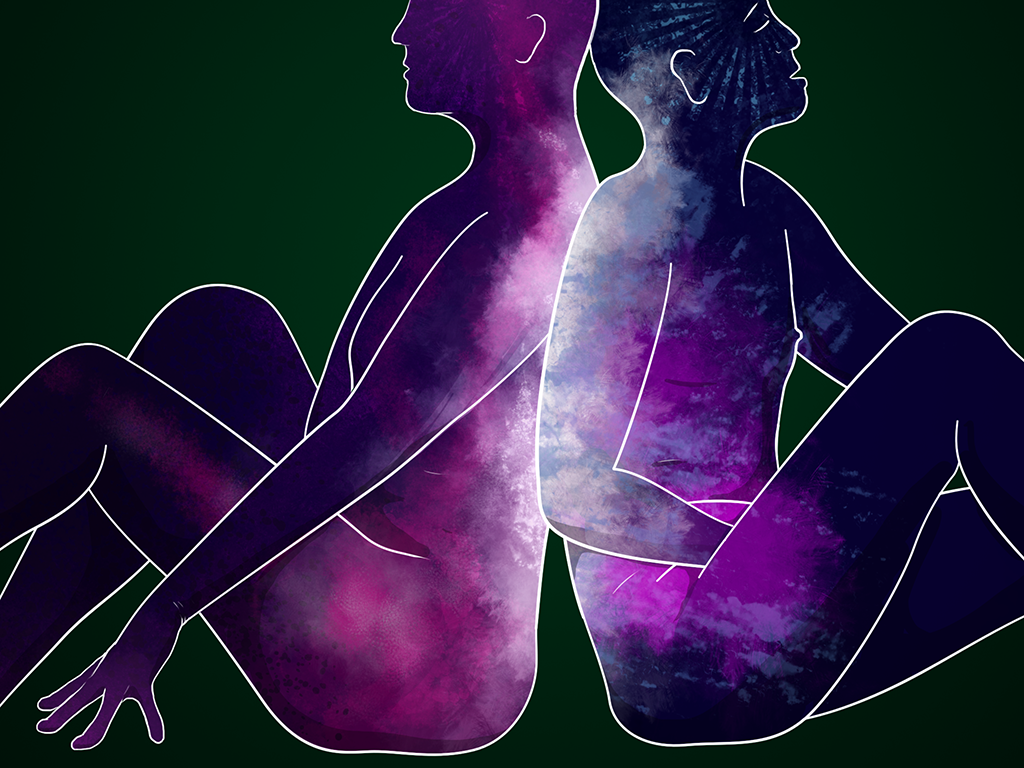I’m so excited to bring you this week’s guest blog, from a brand new guest blogger who has already submitted a second (excellent) post that’s coming up in January! He’s here to talk to you today about sex and disability, specifically fulfilling his hunger for kissing, skin-to-skin contact, and other forms of intimacy, and the ways in which his disability makes him focus more on the journey rather than the destination…
Sex with a disability: Difference brings the world colour
I am disabled. I use an electric wheelchair and I cannot sit up independently. I need care twenty-four hours a day.
I will confess a secret to you my dear reader like the great confessional poet Anne Sexton would: I am lonely. This is not just your normal loneliness – at its worst it can feel like a visceral pain, a black hole that sucks everything in and cannot be satisfied.
I think it is because I am deprived of meaningful human-skin contact.
Studies have shown that loneliness is as detrimental to health as smoking fifteen cigarettes a day.
I worry about the passage of time because time is finite. I feel every tick of the clock as a personal blow, every year I face a new physical or mental health challenge.
As Jean Luc Picard said in Generations:
“Time is the fire in which we all burn.”
To counter the loneliness I occasionally look to paid companions.
Paid companions and disability
Seeing a paid companion involves a lot of personal preparation for me. Before I even get to the pre-arranged meeting place, there is a process I must go through. I must restrict my fluid intake so if possible my suprapubic catheter does not need emptying: some people are quite squeamish about bodily fluids. I also usually restrict my diet for twenty-four hours before a meeting so this reduces my chances of me needing to evacuate my bowels. This might sound easy, but when one feels the excitement/anxiety of meeting someone new, one always has a low-level feeling of needing a nervous poo.
The skin-on-skin contact I get during these meetings is better than any opioid I am prescribed for my constant pain. The pain goes away. I feel validated and listened to, and my opinions matter.
I feel wave after wave of pleasure surging through my body, as I am being cuddled. Oxytocin and endorphins flood my body. My body is no longer fighting against me, we are in unison focusing on every pleasurable sensation.
I don’t often get to see a woman in all her glory. It is such a rare gift that I need, and I desperately kiss every inch of her bare skin just in case I never see another lady like this again. It is as if I am touching a masterpiece at the Louvre Art Gallery.
I understand that able-bodied people tend not to look in the direction of disabled people for mates; I cannot imagine a woman thinking of emptying her dream man’s catheter. I have been told that the biological imperative drives people to desire strong physical specimens to produce healthy offspring (damn that prefrontal cortex), and even fairy tales teach everyone from a very early age that good people are attractive and well-formed; anyone who is different, with a withered hand or a crooked nose, is always a witch or some other wicked character.
Society tells us that difference equates to undesirability, both biologically and socially. I also want you to know that being different can be a good thing, it can open you up to unique experiences.
Recently I had a wonderful experience with a paid companion – this is where patience comes in and appreciating being in the moment. While we got to know one another. She sat in a chair in front of my electric wheelchair and I gave this wonderful empathetic professional an unhurried facial and neck massage, she commented that a gentleman had never given her a facial massage before.
My disability has taught me not to be destination-focused and to enjoy the journey more.
Disabled people can be excellent problem solvers because of the challenges we face daily.
I believe disabled people are more patient because we have to rely on other people, whether that be waiting for hospital transport or for our carers to show up. Patience and problem-solving can be turned into superpowers if one is given the chance to transfer these skills into the bedroom.
“Being different gives the world colour.”
– Nelsan Ellis

2 Comments
you just did a story on a ..disabled ..blogger .how can i get his blog .follow him else ware ..i, am disabled .mark
Hey, so when bloggers submit a guest blog I always ask how they’d like to be credited. If they have a blog/social they want to promote then I include that, but often (as with this fabulous guest blogger) they choose to be anonymous. So I’m afraid I can’t give you this blogger’s details, but I’m glad you liked the post!